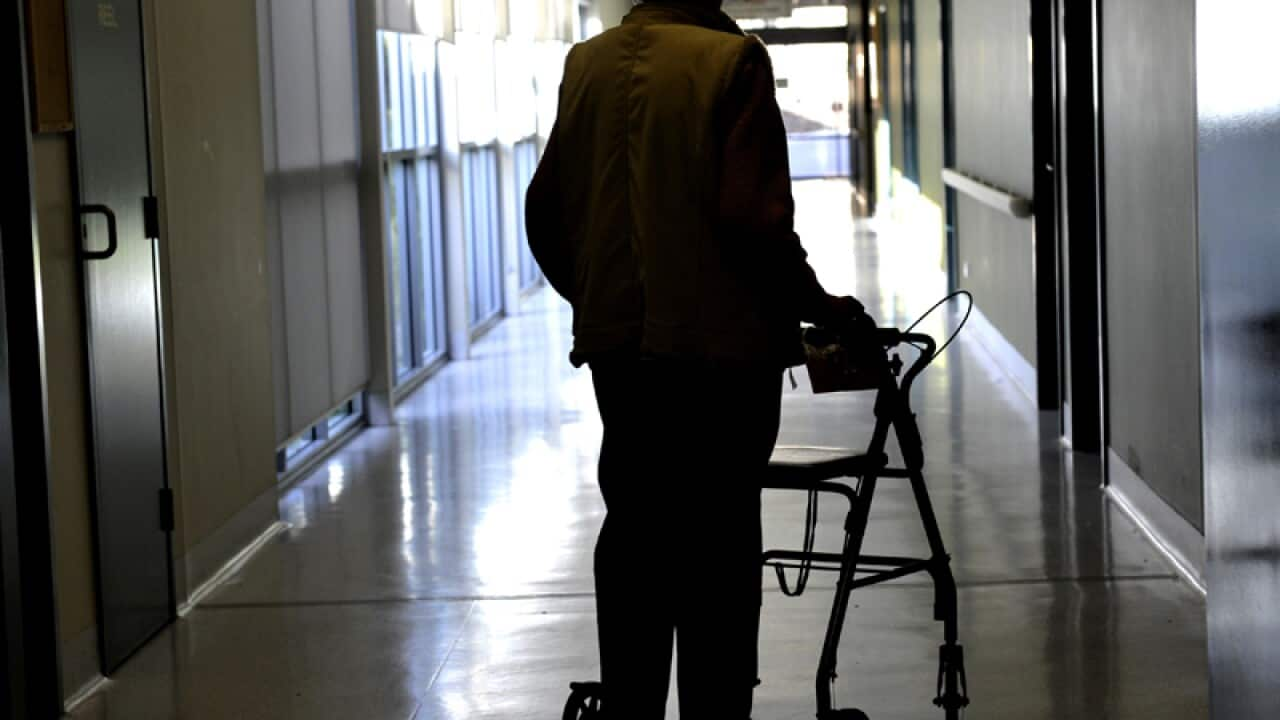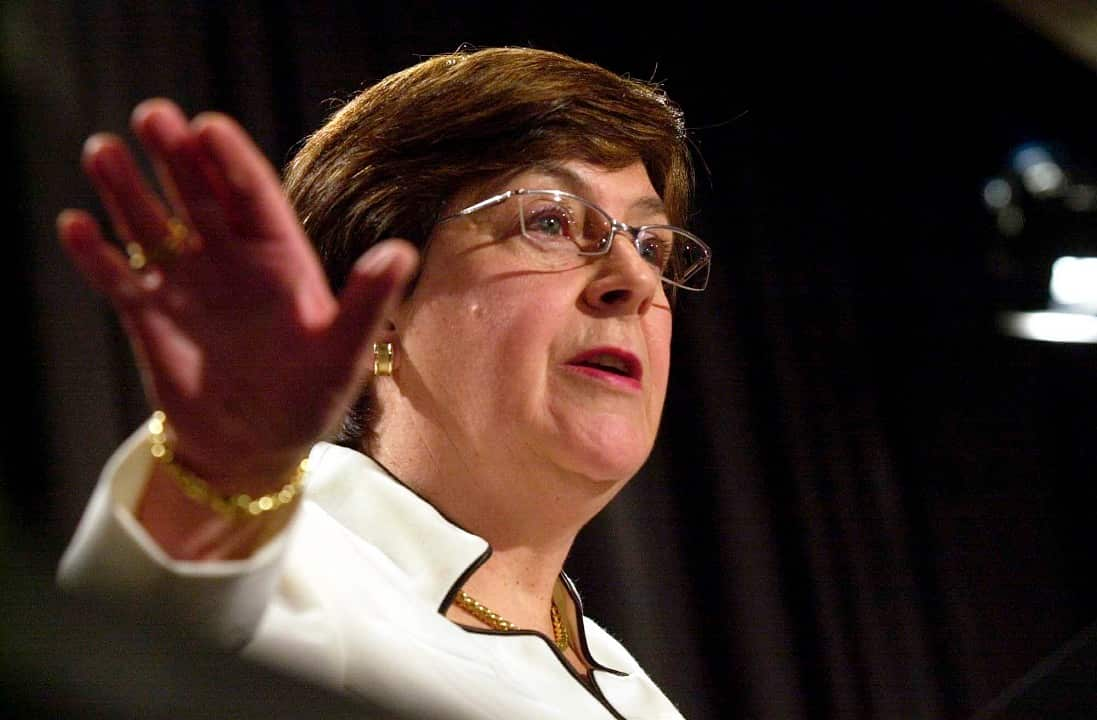A landmark review has called for new laws requiring aged care providers to report any allegations or suspicion of abuse or neglect to an independent body.
The Australian Law Reform Commission also wants improved screening of aged care workers and the regulated use of restrictive practices.
RELATED STORIES:

Commissioner deals with spike in aged care complaints
Elderly abuse is a problem advocates say is far too prevalent, with up to one in twenty senior Australians affected.
But Council on the Ageing chief executive, Ian Yates, says elder abuse is difficult to track.
"Elder abuse is fairly widespread. It is a minority, but it's in numbers, you know, the tens of thousands a year, that are disturbing. And it's disturbing that we don't know about it. Elder abuse remains neglected, and it's time that we picked up our game and did something really significant about it."
A national plan
The recommendations tabled in parliament on Wednesday, follow an inquiry launched last year.
Central to its proposed changes is the development of a national plan, to be used as the basis for the ongoing protection of older people from abuse.
The report recognises the difficulty in documenting the prevalence of abuse nationwide, and has called for a study which the federal government has already committed.
The issue was complex and required a multi-faceted response, the report said. It also noted that older people receiving aged care, whether it's at home or in residential facilities, may experience abuse or neglect from staff, other residents, family members or friends.
Abuse a 'family affair'
Andrew Simpson from Maurice Blackburn Lawyers says elder abuse can be a family affair - and take the form of physical, emotional or financial abuse.
"Financial abuse is very difficult to police because often it happens at the hands of a family member or friend. People help themselves to mum or dad's money without authority, and ultimately depriving mum and dad of their own wealth," Mr Simpson said.
"One of the problems with older people, is often they have compromised capacity, and they don't have social networks around them that can provide the support that they need. And so often, by the time the abuse has occured and the money has been taken, it's too late."

Uniform laws are "absolutely vital," says Age Discrimination Commissioner Kay Patterson. Source: AAP
Responding and reporting incidents
The commission recommends introducing new laws to establish a serious incident response scheme, requiring approved providers to notify an independent oversight body of an allegation or a suspicion of a serious incident.
The body would monitor and oversee the provider's investigation and have the power to conduct its own investigation of serious incidents.
The outcome of an investigation into an incident, including findings and action taken, must also be reported.
Enhancing employment screening processes and ensuring unregistered staff are subject to a national code of conduct has also been tabled. Likewise the push for banks to introduce better financial protection for vulnerable customers.
Nationwide approach
Mr Yates has welcomed the report's calls for consistency across states and territories.
"We very much suffer at the moment from a 'bits and pieces' approach. Inconsistent laws, gaps in laws, and no national framework at all."
Age Discrimination Commissioner, Dr Kay Patterson, says that uniform laws would help reduce confusion over matters like power of attorney.
"They're absolutely vital. And I think people who are making powers of attorney need to understand what their rights are. And I think we know as well as we should that we can put conditions on it."
In a statement Attorney-General George Brandis welcomed the findings, saying the government has committed to a national framework, and invested $15 million dollars to protect older Australians.
Dr Patterson believes that support is crucial.
"And it really requires action from all levels of government. From businesses, like banks, from health professionals, and anybody who comes in contact with older people."
Other recommendations:
- Allowing tribunals to resolve family disputes involving agreements to provide care in exchange for residential property.
- A national co-ordinated response to improving lawyers' understanding of the potential for elder abuse using wills.
- Changing the code of banking practice to require banks to take 'reasonable steps' to identify and prevent the financial abuse of vulnerable customers.
- Requiring private guardians and private financial administrators to sign an undertaking about their obligations and responsibilities.
- The development of an elder abuse strategy by the Department of Human Services.
- Introducing adult safeguarding laws in each state and territory to help protect other vulnerable Australians from abuse.
- with AAP
Share


